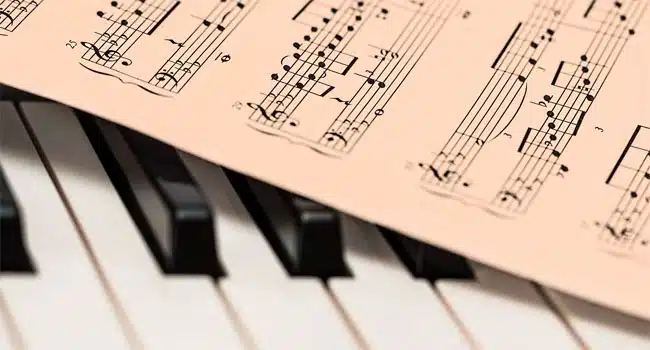Artificial intelligence is changing the music industry by lowering the threshold that amateurs have used to make high-quality recordings for years. There is no longer any need for costly studio time or years of technical expertise since artificial intelligence music programs can now automatically perform difficult tasks like voice processing, mixing, and mastering. Bedroom producers using basic equipment can now access high-end production capabilities with these AI audio tools that function via modest software subscriptions.
Explaining how AI is influencing the way solo artists create music
Solo musicians’ music creation is changing with AI. Smart mixing, mastering, and sound correction systems may replace expensive studios and producers. Streaming tracks may be made using a laptop, a mic, and AI plugins.
The big win is accessibility. Independent musicians get the same quality options once reserved for major labels, so the gap is closing fast. It’s a lot like grabbing a $200 no deposit bonus 200 free spins real money Canada offer, where you suddenly get access to features that used to feel out of reach.
What are the most significant challenges that DIY musicians encounter?
Attempts by independent artists to create music that sounds professional face several substantial challenges.
The most common obstacles include:
- High equipment costs make it difficult to compete with professional setups.
- Limited technical knowledge about sound engineering and production.
- Time limits creativity while studying mixing and mastering.
The equipment alone might cost thousands of pounds. Before software licensing, buying high-quality microphones, audio interfaces, studio monitors, and acoustic treatment is expensive. DIY musicians sometimes use cheap gear, which is evident in their recordings.
Technical expertise is also difficult. Understanding compression ratios, EQ curves, reverb settings, and mixing procedures requires much study and experience. Even expensive gear sounds awkward without this knowledge.
Compounding these issues are time limits. As a musician, you’re probably finding that your creative juices are running low as you learn to mix and master your music properly. Frustrated by technological limits, many artists quit projects midway through development.
How might AI lower music production costs?
Artificial intelligence (AI) audio tools replace costly gear and expert services with smart software solutions, drastically lowering production costs. A monthly subscription may provide you with the same amount of processing power as thousands of pounds’ worth of outboard gear.
Processing AI on the cloud does away with the need for robust computer hardware. Services enable you to execute enterprise-level computing on budget laptops by offloading complex computations to distant servers. No matter what your computer specs are, this method will allow you to produce high-quality music.
Human mastering engineers cost far more than AI mastering services. In contrast to human mastering, which may cost anywhere from $50 to $200 per track,
AI solutions often cost less than $10 and provide identical results across a wide range of musical genres.
Instead of demanding hefty sums up front, the subscription model allows users to spread out the expense over time. Artists on a tight budget now have access to professional equipment with affordable, all-inclusive production suites that cost about the same as a few coffee shop trips a month.
How can I find AI tools that I may use for home mixing and mastering?
By automating complicated audio processing chores, modern AI mixing and mastering technologies revolutionize home recording possibilities. These programs can analyze your music and make expert-level alterations without necessitating much technical understanding on your part.
Popular AI features to look for in home production tools:
- Automated level balancing, EQ, and compression tailored to your track.
- Voice processing with presets for lead, backing, and harmonized vocals.
- Mastering services that check loudness and optimize playback for streaming.
- Reference analysis that compares your mix against professional tracks.
Automated level adjustments, equalization adjustments, and compression settings may be established by AI-powered mixing aids in response to detected musical material. Like a virtual mixing engineer, they can hear troublesome frequencies and provide suggestions on how to fix them.
When it comes to voice processing in particular, software like SoundID VoiceAI is changing the game for do-it-yourself artists. With more than fifty different voice and instrument presets, you can do everything from arrange solo vocal recordings into full-on backup vocal arrangements to make demonstrations that seem like they were recorded by pros to turn hummed melodies into instrument parts.
To ensure your mixed files meet commercial loudness requirements, automated mastering tools analyze them and apply the necessary limiting, equalization, and stereo augmentation. To make sure your final masters sound well on streaming sites, these services compare your music to thousands of reference songs in related genres.
In what ways may AI make music production more efficient?
By automating labor-intensive production processes, AI acceleration revolutionizes music creative operations. You may concentrate on making creative choices with the help of AI-powered music production tools that can analyze sounds, create musical elements, and produce them.
In times of creative block, chord progression and melody generators might be a lifesaver. By analyzing musical patterns from extensive databases, these programs may efficiently eliminate writer’s block by suggesting harmonically acceptable continuations for your songs.
Instead of spending hours, drum pattern makers may create rhythmic bases in seconds. Finding the ideal rhythm is as easy as auditioning dozens of versions; there’s no need to code individual hits or scour sample libraries.
Producing demos is now a breeze using voice transformation technology. You may make a wide variety of voice arrangements from only one recording, saving you time and money compared to hiring additional performers or layering vocals. This method allows you to try out various voice arrangements and textures while you’re writing without having to shell out a ton of money for recording sessions.
Where does artificial intelligence go from here in DIY music production?
Future audio production technology will provide independent musicians more accessibility and inventiveness. These technologies handle complicated industrial activities with intuitive user interfaces and develop AI.
New AI systems may simplify industrial processes. The best music will always need human creativity and artistic vision, but future systems may be able to compose, arrange, record, mix, and master songs given simple creative instructions.
DIY artists worldwide may rapidly exchange and digest musical ideas because of real-time cooperation. AI will simplify these connections by automatically addressing technical compatibility issues across recording settings.
Anyone with a musical concept will soon have access to professional-quality production tools thanks to the democratisation trend. This change has the potential to revolutionize the music industry by releasing hitherto untapped creative potential from independent musicians throughout the globe.





